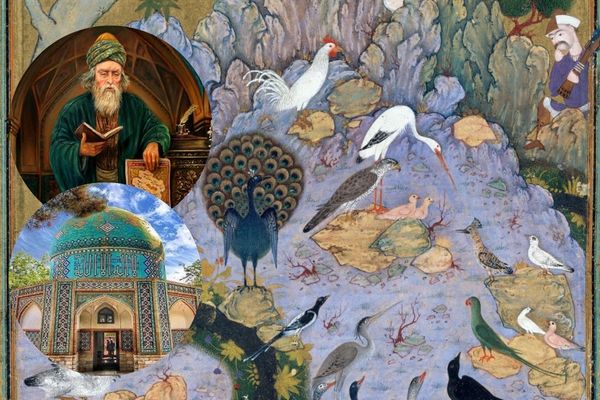Farid al-Din Abu Hamid Mohammad Attar, commonly known as Attar of Nishapur, was a prominent Persian poet, Sufi mystic, and hagiographer born around 1145-46 in Nishapur, located in present-day Iran. The pen name "Attar" translates to "apothecary," reflecting his early profession as a pharmacist or herbalist.
Attar's literary contributions have had a profound and lasting impact on Persian poetry and Sufism. Among his most celebrated works is "The Conference of the Birds" (Mantiq al-Tayr), an allegorical poem that narrates the journey of birds in search of their king, symbolizing the soul's quest for union with the divine. Another significant work is "Memorial of the Saints" (Tadhkirat al-Awliya), a prose compilation detailing the biographies and sayings of renowned Muslim mystics, offering deep insights into Sufi thought and practice.
Attar's influence extended to later luminaries of Persian literature, notably Jalal al-Din Rumi, who regarded him with great admiration. Rumi is quoted as saying, "Attar has traversed the seven cities of Love, while we have barely turned down the first street."
Tragically, Attar's life came to an end during the Mongol invasions, with historical accounts suggesting he was killed in April 1221 during the massacre that the Mongols inflicted on Nishapur. His mausoleum in Nishapur remains a site of reverence, attracting visitors who pay homage to his enduring legacy in Persian literature and Sufi mysticism.
Sokhanvar information
Published on Dec. 24, 2024, 3:22 p.m. by @admin
- Name: Faridoldin Abu Hamed Mohammad Attar Neyshaburi
- Persian Name:: فرید الدین ابوحامد محمد عطار نیشابوری
- Alias: Attar
- Comments: 0
- Views: 664
Works
In introductions of Mukhtār-Nāma (مختارنامه) and Khusraw-Nāma (خسرونامه), Attar lists the titles of further products of his pen:
Dīwān (دیوان)
Asrār-Nāma (اسرارنامه)
Manṭiq-uṭ-Ṭayr (منطقالطیر), also known as Maqāmāt-uṭ-Ṭuyūr (مقاماتالطیور)
Muṣībat-Nāma (مصیبتنامه)
Ilāhī-Nāma (الهینامه)
Jawāhir-Nāma (جواهرنامه)
Šarḥ al-Qalb[18] (شرحالقلب)
He also states, in the Mukhtār-Nāma, that he destroyed the Jawāhir-Nāma' and the Šarḥ al-Qalb with his own hands.
Books
- No books added yet.

